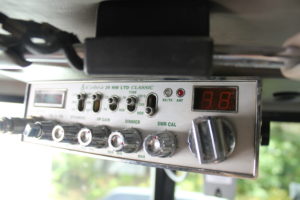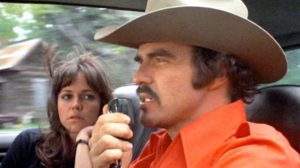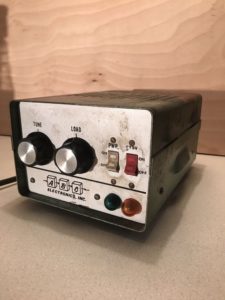
Burt Reynolds and Richard Nixon might seem like unlikely partners, but together they teamed up to start a craze. An unknown songwriter named Bill Fries was also a major contributor, as were a couple of country boys named Bo and Luke.
Nixon did his part by enacting into law the nationwide 55 MPH speed limit, putting the federal government in the business of determining how fast you could drive on highways, a job that belonged to individual states before Tricky Dick signed the papers. His other bone-headed proclamation, year-round DST, was mercifully gone within a year.
Arguably, driving 55 saved gasoline. It also wasted our lifetimes, turning eight hour trips into ten hours. Many say it saved lives. That is a dubious argument at best, as the evidence points as much to improved safety features in cars as much as the reduced speed limits.
Truckers were livid. Their livelihoods depended on getting their loads to various destinations in a timely matter, and the nationwide speed limit put a serious damper on that. By and large, non-professional drivers grew to resent the law as well. The interstate highways were designed to be safely traveled at speeds of 70 MPH and faster, and tooling along at 55 just didn’t seem right in many ways.
So, the nation rebelled. And their main weapon in the non-violent coup was the CB radio.
Citizen’s band radios were originally intended for public and small business communication. It took an FCC license to legally operate them. The 1960’s saw them used by contractors, taxi drivers, and especially truck drivers. They developed their own slang, as well as a protocol that was to be followed at all costs.
The aforementioned speed limit in 1974 brought them to the forefront in the trucking industry. Fellow drivers warned each other of speed traps over the airwaves.

That’s where Burt Reynolds, “C.W. McCall,” and the Duke boys stepped in. As tales of the trucker’s circumvention of the cops and their radar guns began to circulate, a pop culture formed around their communication medium, the CB radio.
Burt, of course, was the star of 1977’s Smokey and the Bandit, a movie which was a huge hit, and which featured use of CB’s throughout its length. The Dukes of Hazzard also used the device to foil Boss Hogg. And Jim Fries noticed the character of C.W. McCall, created to sell baked goods in the Omaha, Nebraska area, and took his persona in performing one of the biggest hits of the 70’s, Convoy.
When I was a junior in school in late 1975, the CB radio craze hit my little town of Pea Ridge, Arkansas. Lunch hours were spent ratchet jawing with truckers. Nights were spent doing the same. And we all adapted handles. I was Trapper John, BTW.
Longtime CB users were outraged. They had paid good money to get their licenses, and here were a bunch of people using their bandwidth illegally, and completely ignoring their protocol! So many CB’s were sold that the government ended up lifting the license requirement, infuriating the old-timers even more.
Other abusers bought devices known as linear amplifiers to magnify their signals from the legal five watts to a thousand or more. These would interfere with neighbor’s TV reception, and would also bleed over onto other channels within the bandwidth.

However, many amplified home base users were foiled by a simple straight pin thrust through the coaxial cable leading to the antenna. When the mike was keyed, the amp was instantly smoked. Frontier justice at its finest!
In many ways, the original users of the internet were like the early licensed CB users. Posting on USENET required that you know the rules of behavior beforehand. That was brought to a screeching halt by two lawyers from Phoenix. I quote from net historian Brad Templeton:
In April of 1994, the term (spam) was not born, but it did jump a great deal in popularity when two lawyers from Phoenix named Canter and Siegel posted a message advertising their fairly useless services in an upcoming U.S. “green card” lottery. This wasn’t the first such abusive posting, nor the first mass posting to be called a spam, but it was the first deliberate mass posting to commonly get that name. They had posted their message a few times before, but on April 12, they hired a mercenary programmer to write a simple script to post their ad to every single newsgroup (message board) on USENET, the world’s largest online conferencing system. There were several thousand such newsgroups, and each one got the ad.
CB usage faded away, until it was back in the hands of the original folks who found practical value from it. However, protocol has slipped badly. It was once seriously frowned upon to use even mild profanity on the air. Alas, listening to channel 19 these days will make your ears turn blue.
The internet, however, is only growing larger. It is becoming more and more a part of our daily lives, and in fact will likely need to be redesigned as it gets more and more stressed by its daily addition of tens of thousands more users.
Oh well. Even CB radios had to be ramped up from 23 channels to 40.